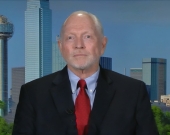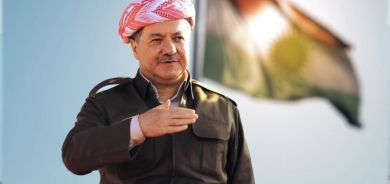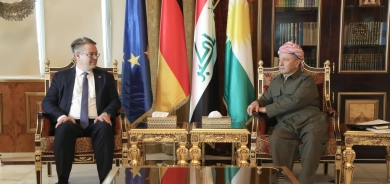Dr. Daniela Irrera to Gulan: Russia-Ukraine war will affect relations among coalitions in the global political system

Dr. Daniela Irrera to Gulan: Russia-Ukraine war will affect relations among coalitions in the global political system and will change balance of powers
Daniela Irrera (PhD in International Relations, University of Catania) is Associate Professor of Political Science and International Relations at the Department of Political and Social Sciences, University of Catania, where she serves as Deputy Rector for Erasmus Exchange, Chair of the MA program in Global Politics and Euromediterranean Relations and Vice-coordinator of the PhD program in Political Sciences. She is currently member of the ECPR Executive Committee, Chair of the Working Group on Academic Freedom and .Visiting Professor of Political Violence and Terrorism at the OSCE Academy in Bishkek. She has served as Secretary General of the Italian Political Science Association (SISP), member of the ISA Governing Council, Chair of the ECPR Standing Group on International Relations, President of the European Peace Research Association. She is associate editor of the Journal of Contemporary European Studies and co-editor of the Springer book series on Non-State Actors in International Relations, together with Marianna Charountaki. Her main research interests deal with Non-State actors in International Relations (both NGOs, organized crime and terrorism) and she is currently involved in three main projects: the COST CA21133 on Globalization, Illicit Trade, Sustainability and Security (GLITSS); the Strategic Partnership MORDOR, focused on illiberalism and dictatorships; and project funded by the Spanish Ministry of Education on deradicalisation policies in the EU. In a written interview she answered our questions like the following:
Gulan: How do you see the unfolding of the Russian-Ukraine war? and in your opinion why Russia is doubling down on this war?
Dr. Daniela Irrera: At the very beginning, the Russian aggression to Ukraine was perceived as another attempt to expand the Russian area of influence and reach the so-called ‘Russian world’ and most analysts were expecting this military campaign to be a blitzkrieg, as it happened in 2014. Obviously, it was not a surprise, given that, since then, Crimea has been annexed to Russia and the Donbass regions live a persistent state of insecurity. After one year, Russia has failed its initial plans to conquer Ukraine and that this was rather turning into a global one. Although it is fought on the Ukrainian territory only, its effects are already displaying on the whole global political system.
Gulan: Obviously, Russia has not been running out of money as the result of the sanctions imposed by western countries, so how do you assess the effectiveness of these sanctions?
Dr. Daniela Irrera: Political conditionality through sanctions is very common in international relations and there are several examples which can be mentioned, from Iraq under Saddam Hussein to Syria under Assad. Discussions on the real effectiveness of these tools on political leaders and their regimes and their bad effects on local populations have largely concerned scholars and practitioners. Russia is not new to sanctions. From a financial point of view, as it is said in the question, Putin may appear not been running out of money. However, sanctions may produce more impact from a political point of view and in the coalition building process.
Gulan: What does the Russia- Ukraine war tell us about the great power politics? Have we ushered into another cold war? Can we say that this war has been another nail on the coffin of the what has been called rules-based order?
Dr. Daniela Irrera: Rather than a new Cold War, I would say that this war will affect relations among coalitions in the global political system and will change balance of powers, as well as energy and other strategic resources dependency. Until today, Russia has played an oppressive role in its area of influence, impacting security also in other regions and conflicts, like the Balkans and Syria. Relations with other powers, that is to say Turkey, India, Iran and China have been ambiguous and speculatively manipulated. Clearly, this dominant role is not compatible with a stable global order. However, it is not automatic that a new way to deal with it will be easily renowned.
Gulan: To what extent this war has changed or shifted the European’s calculation in terms of energy and military security? and what would be the implication of this shift on the future of this continent?
Dr. Daniela Irrera : This crisis could be a great chance for the EU to learn some important lessons. Since the Minks peace agreement, the EU was expected to play a leading role. However, member states are also sovereign entities dominated by their national interests and political objectives. Therefore, bilateral relations may sometimes impact the common position that the EU should auspiciously have. Among lessons that the EU could learn, the awareness that relations with Russia will necessarily be remodeled and the various sources of instability which currently distress the global system cannot be tolerated much longer. EU countries are also aware that freedom from energy dependencies passes through negotiations with countries led by authoritarian leaders. Assuring this achievement to millions of European citizens, guaranteeing, and not undermining those values upon which the EU has been built, is another major challenge.
Gulan: What impact will the Italian government's stance against Russian invasion have on Italian domestic politics? And how is Italy handling the international problems brought on by Russia's invasion of Ukraine?
Dr. Daniela Irrera: Foreign policy is the result of consolidated relations with political partners, membership of international and regional organizations, compliance with international law, as well as with multilateral norms and practices. This is a constant part of a state conduct, regardless political and ideological orientations. Italy is currently led by a far-right government and, in the past, members of the actual political élites have manifested pro-Russian positions. However, there is no doubt that the country should stand for universally recognized values and principles, supporting Ukraine against the aggressor.















